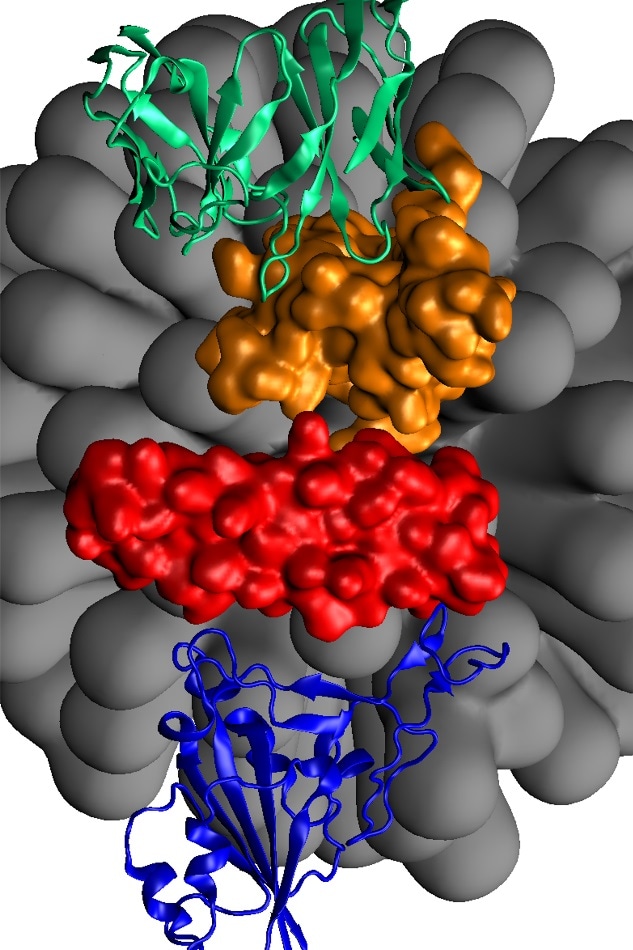The new coronavirus SARS-CoV-2, which was responsible for causing the recent pandemic, infects human beings by attaching its surface-exposed spike proteins to ACE2 receptors, which in turn, are exposed to the cell membranes.

Double-faced peptide-based boosters are computationally designed to allow recognition of SARS-CoV-2 (grey, schematic) by Hepatitis B antibodies. One booster face made of ACE2-mimic peptides (red) can bind to the receptor-binding domain of SARS-CoV-2 (blue). The other booster face composed of a Hepatitis B core-antigen (orange) can target the Hepatitis B antibody fragment (green). This approach can provide a cheap and efficient neutralization of emerging pathogens by generic antibodies. Image Credit: University of Illinois at Chicago.
When a vaccine is administered or an actual infection occurs, it takes several weeks before antibodies are developed by the immunity and the same can selectively attach to these spike proteins. The T cells and natural killer cells operated by human immunity neutralize these antibody-labeled viruses.
Now, researchers from the University of Illinois at Chicago (UIC) and California State University in Sacramento have created a new technique that provides an alternative method to train immunity response. This technique redirects antibodies for other existing human diseases to SARS-CoV-2 spike proteins.
In a research published in the Journal of Physical Chemistry Letters, the researchers have suggested the use of peptide-based double-sided “booster” inhibitors, with one face attached to SARS-CoV-2 spike proteins, and the other face attached to generic hepatitis B antibodies.
Once the SARS-CoV-2 viruses become labeled by the hepatitis B antibodies via intermediate boosters, the viruses will be neutralized. This universal approach allows a dramatic shortening of the response time upon real infections, which can be critical in certain patients or conditions.”
Petr Král, Study Senior Author and Professor, Chemistry, Physics, Pharmaceutical Sciences, and Chemical Engineering, University of Illinois at Chicago
Král and Yanxiao Han, the first author of the study and who recently earned a Ph.D. in Chemistry at UIC, assumed that the research work could support the preparation of generic treatments for emerging pathogens with the combined benefits of antibody and small protein therapies.
The dramatic impact which novel viruses can have on humans could be fast mitigated in the absence of their vaccination if generic antibodies present within them are temporarily retrained to recognize these viruses.”
Study Researchers
In a research work published last spring, both Král and Han isolated various peptides from ACE2 receptors that directly interact with the viral spike protein.
We investigated potential COVID-19 therapeutics using computer simulations based on the X-ray crystal structure of the receptor-binding domain of SARS-CoV-2 when it is bound to ACE2. Similar to our latest study, identifying these kinds of inhibitors could lead to new treatments to combat the coronavirus.”
Petr Král, Study Senior Author and Professor, Chemistry, Physics, Pharmaceutical Sciences, and Chemical Engineering, University of Illinois at Chicago
Source:
Journal reference:
Han, Y., et al. (2021) Retrained Generic Antibodies Can Recognize SARS-CoV-2. Journal of Physical Chemistry Letters. doi.org/10.1021/acs.jpclett.0c03615.